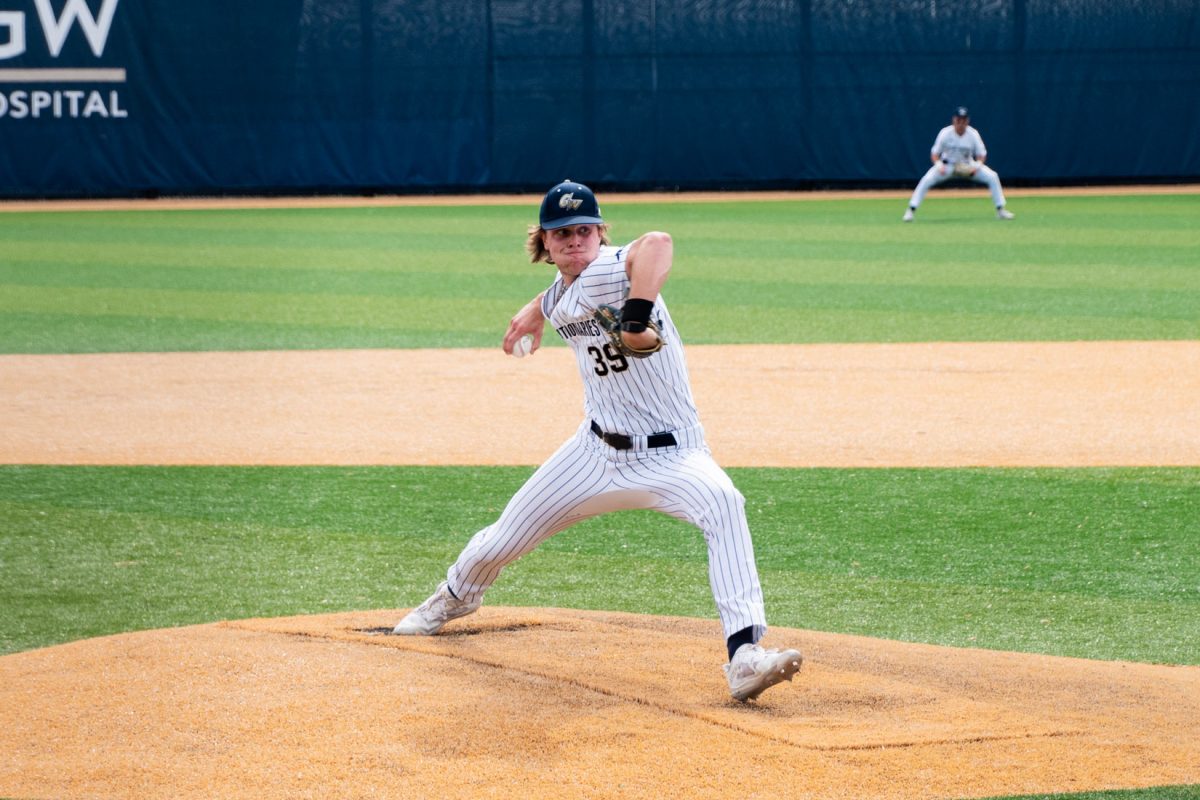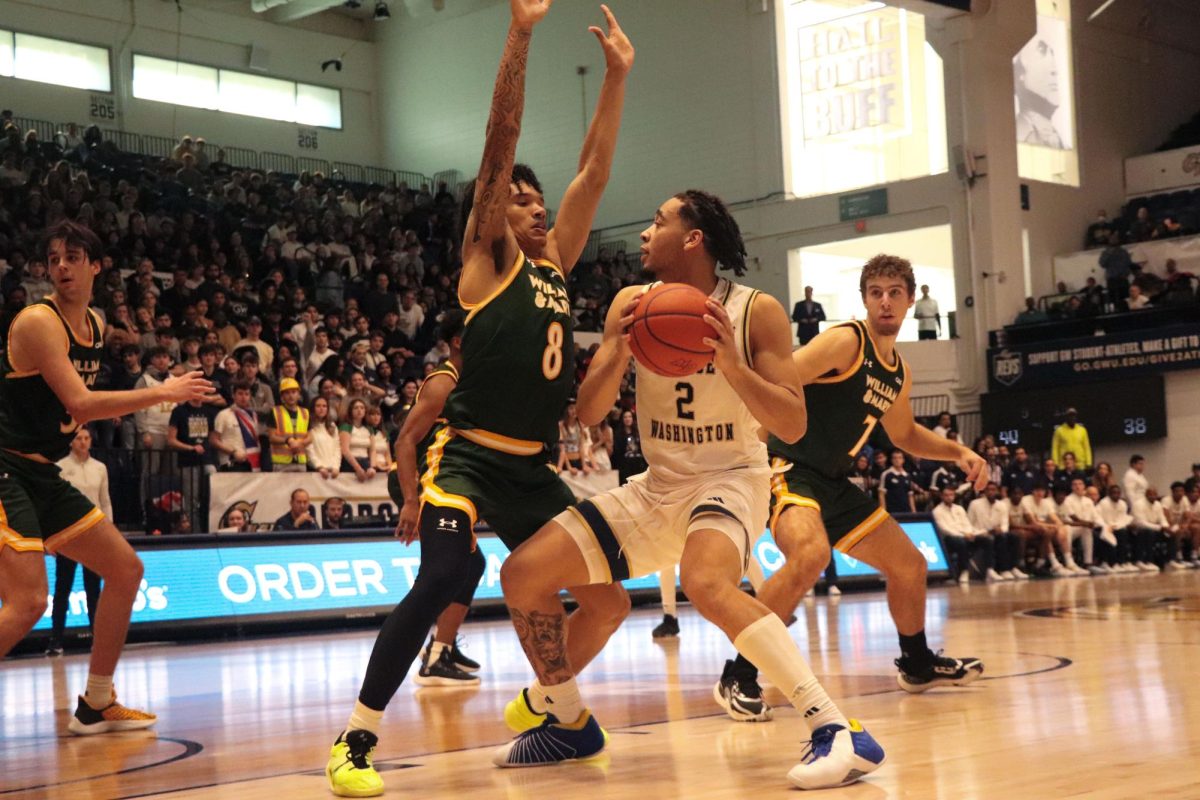Students from WRGW took a train to the 30th Street station and a cab to the Tom Gola Arena in Philadelphia, where they announced the Colonials’ 83-70 loss at La Salle on air. Nothing seems out of place here – a student station providing its own transportation to an away game – except that it’s the latest example of how coach Karl Hobbs has changed the team’s long-standing policies.
This one, which forbids outsiders from accompanying the team on its bus, creates personal space for Hobbs’ players that did not exist under former coaches Tom Penders or Mike Jarvis.
“This isn’t about the radio guys or how they travel to games,” Hobbs said. “It’s about respecting our privacy.”
What is odd about this policy, according to WRGW broadcaster Vinay Murthy, is that Hobbs did not enforce it until after the Jan. 9 loss at Dayton. Since then, GW has lost six of seven games.
“The team took us from the hotel to the arena and back,” Murthy said of the road trip to Ohio. “Everyone was very friendly and even thankful for us making the trip, but then we found out after winter break that things had changed.”
While the policy marks a change for WRGW, it is the standard rule at most other Division I universities, including Atlantic 10 teams Dayton, Richmond, Massachusetts and Rhode Island, where the team bus, usually a luxury liner, is limited to team personnel.
Hobbs said he allowed radio broadcasters to ride on the bus earlier in the season because he was not made aware of what one broadcaster called “an unwritten rule,” and he did not want to remove them from the bus at the last minute.
“This has been effective since I took the job,” said Hobbs, in his first season as a head coach. “But those guys were allowed onto the bus without my knowledge, and I wasn’t about to tell them to get off at that point.”
Part of what has defined Hobbs’s first season head coaching has been an overall increase distance his players from the public spotlight. Earlier this season, Hobbs instituted a measure aimed at keeping outsiders away from his basketball practices. In his first week of practice, Hobbs decided outsiders included the GW women’s basketball team when he asked members of the team to leave the area during practice.
Since week one, access to the team has been limited to one open practice a week, in which Hobbs put his team on display for about 200 fans and media. As of now, practices remain closed to the public, the standard at most Division I schools.
Hobbs said he sees his team bus as a place for players to be themselves, a sanctuary of sorts.
“The media has so much access to these guys, and I feel very strongly that they should be able to get on their team bus without having to conduct themselves in a certain way because the media is there,” Hobbs said.
It’s no surprise the policy was enforced when GW began losing conference games. After the Dayton loss, GW has struggled enormously, winning just one of seven games since then. The team is currently on a six-game losing streak, which is likely to hit seven with Temple visiting this weekend.
Nobody at the campus station seemed particularly irked by the new policy, since it does not impact the quality of broadcasts. Broadcasters travel to road games by way of train and taxi, and GW gives them a $100 stipend for trips, according to Sports Director Mike Nurenberg, who spoke from aboard the Colonial women’s bus returning from a win against La Salle.
Despite the inconvenience of making these new travel plans, WRGW broadcasters agreed they are not offended by the policy.
“It’s definitely an inconvenience,” broadcaster Brett Kaplan said. “We took it for granted under other coaches, but we understand that it is Hobbs’ bus.”
Both Kaplan and Murthy agreed that what makes this difficult is planning for games in small cities such as Olean, N.Y., home of St. Bonventure.
“Most of the games are in Philadelphia,” Kaplan said. “But when we travel to somewhere like Amherst that is a long way from Boston, it becomes much more complicated.”
While the radio station adjusts to the new policy, its coverage of games is not expected to change.
“Basketball games are a vital part of WRGW,” Murthy said. “And we still plan to cover every men’s and women’s game, both home and on the road.”







